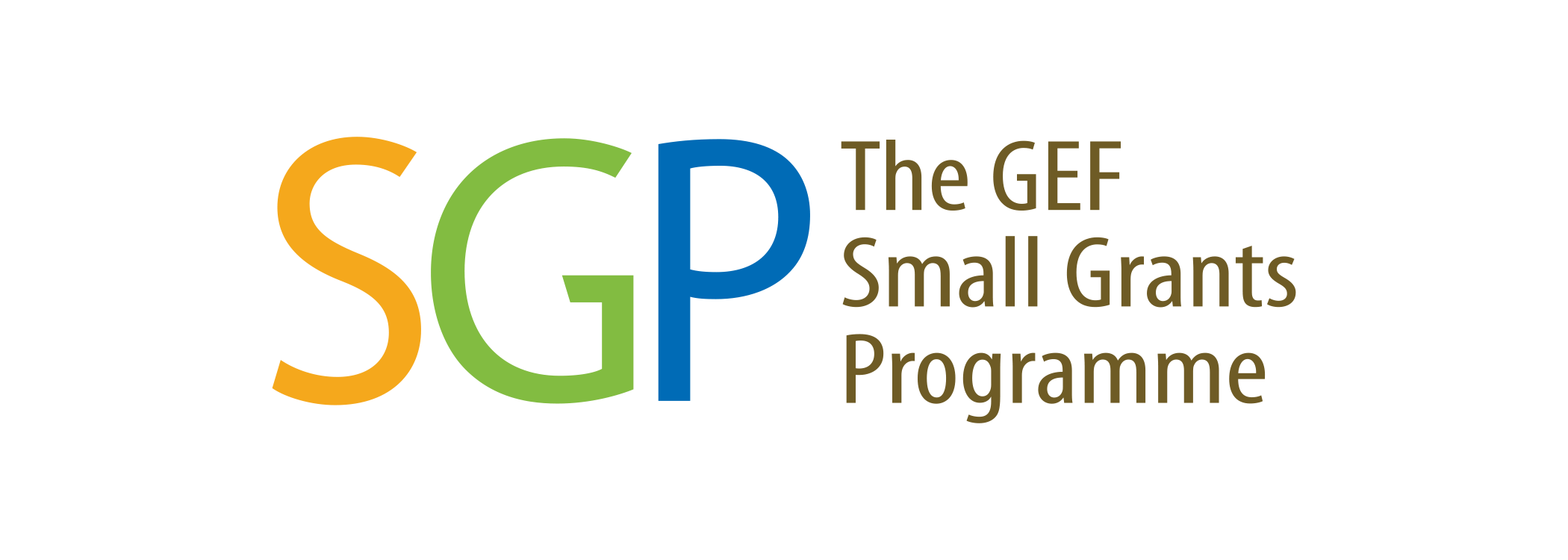In Living Colour
Local action for coral reef restoration in Barbados
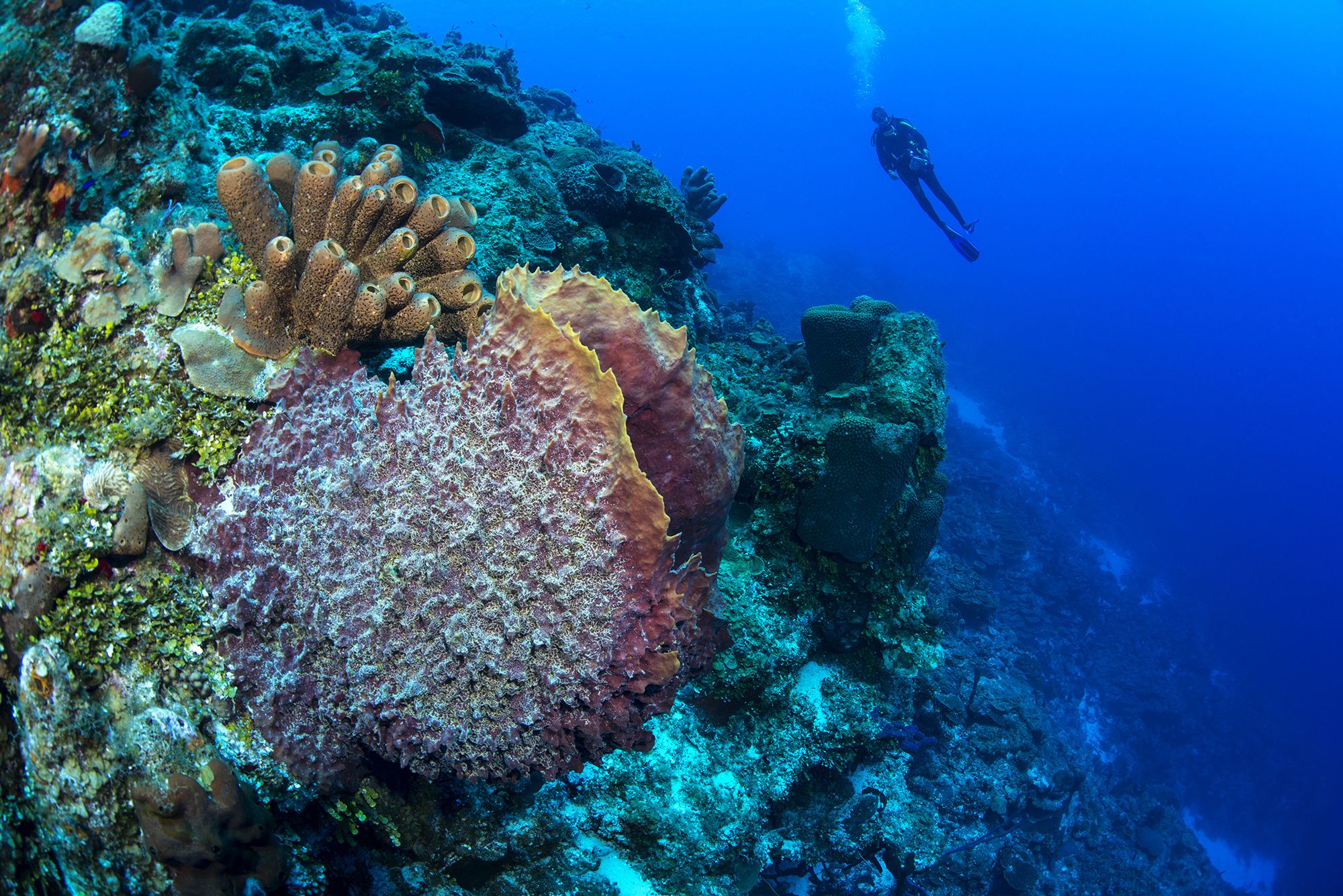
“I was on board from day one,” remembers Courtney Forde, Volunteer and past Vice President of the Coral Reef Restoration Alliance (CORALL).
“I always had a fondness for the sea and for coral reefs particularly.”
Courtney is a marine professional and conscientious citizen – who combines his skills, knowledge and passion for the ocean towards the well-being of coral reef ecosystems.
He works at the Caribbean Institute for Meteorology and Hydrology. As part of the team developing the Coral Reef Bleaching Outlook for Barbados, he has first-hand experience on the state of Barbados’ coral reefs.
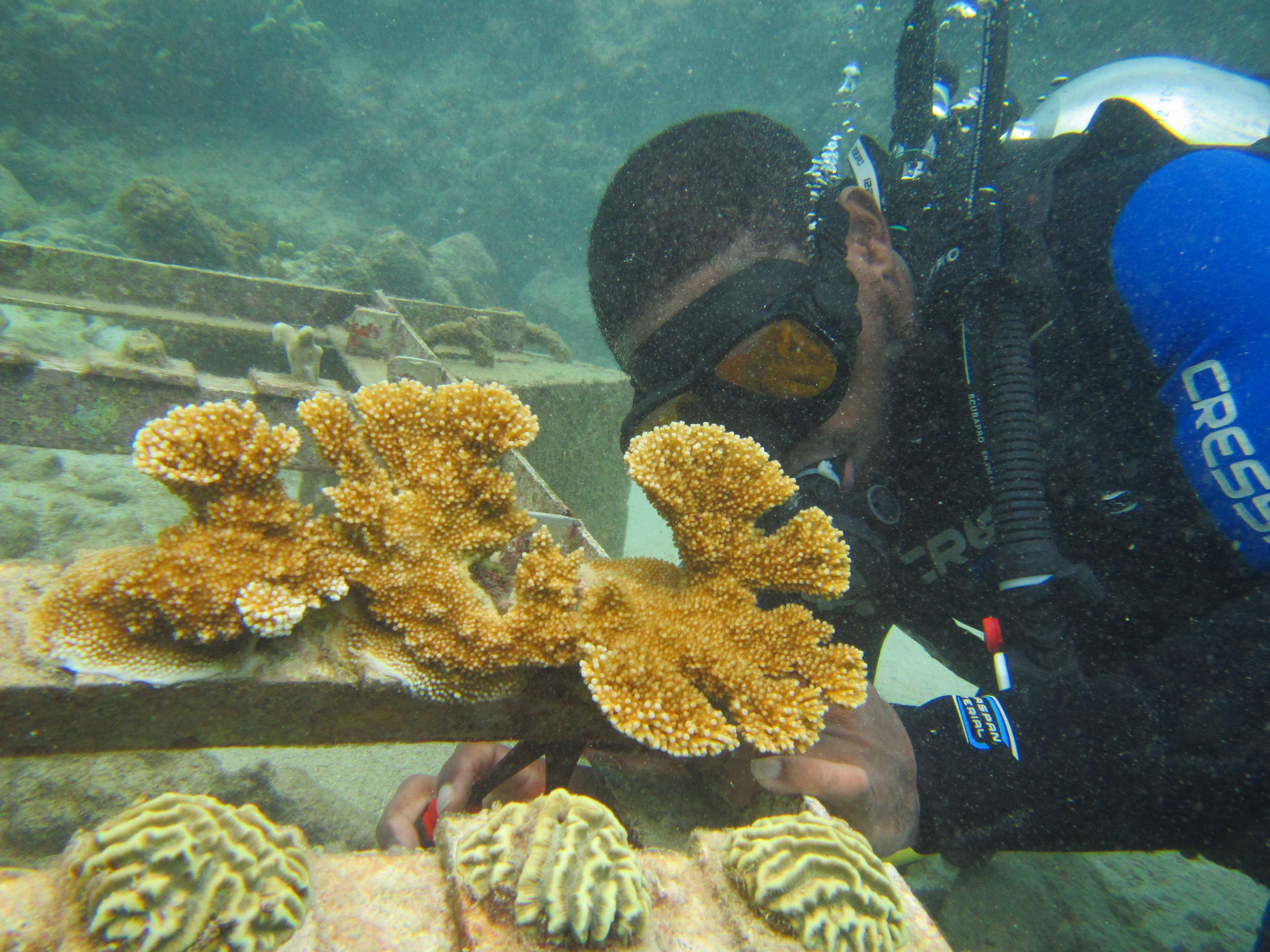
Courtney Forde monitoring coral growth. Photo: CORALL
Courtney Forde monitoring coral growth. Photo: CORALL
For Courtney, joining the CORALL team, a local NGO dedicated to coral reef conservation, was an easy choice.
What we’re losing
In his role as Technical Officer at The Caribbean Institute for Meteorology and Hydrology, Courtney knows well that the coral reefs of Barbados are deteriorating and dying.

The demise of coral reefs across the Caribbean is a microcosm of the situation being experienced across the world. Photo: Umeed Mistry/Ocean Image Bank
The demise of coral reefs across the Caribbean is a microcosm of the situation being experienced across the world. Photo: Umeed Mistry/Ocean Image Bank
The deterioration of coral reefs can be attributed to macro-scale global stressors such as: climate change causing anomalously high sea surface temperatures, ocean acidification and increased hurricane activity; as well as chronic local stressors such as overexploitation of fish stocks, pollution, and nutrient enrichment from land-based sources.
The Barbados Coral Reef Report Card, which collated decades of data through 2020, gave Barbados’ reefs an average health score of 2.7 out of 5, which means the island's coral reefs are, on average, in fair condition. However, health scores varied among individual reef sites and reef types in Barbados, with west coast fringing reefs scoring the lowest at 2.2 (considered to be poor).
Natural wonders
A common ecosystem feature and important economic driver for most Small Island Developing States (SIDS), coral reefs are usually associated with stunning natural beauty.
They are some of the most biodiverse ecosystems on the planet, and it is estimated that 25 per cent of all marine species live in and around coral reefs.
Healthy, vibrant reefs contribute to the well-being of society, by regulating climatic conditions, protecting the coastline from storms and tsunamis, serving as a habitat and breeding ground for a range of species, providing jobs, food, medicines, and places for reflection and recreation.
Millions of coastal and island people rely directly on reef productivity to support livelihoods, food security and the tourism sector.
These vital ecosystem services provided by coral reefs mean that their deterioration has critical repercussions for society. For SIDS like Barbados, protecting these natural wonders is key to sustaining the fishing and tourism sectors and the livelihoods of people who depend on them.
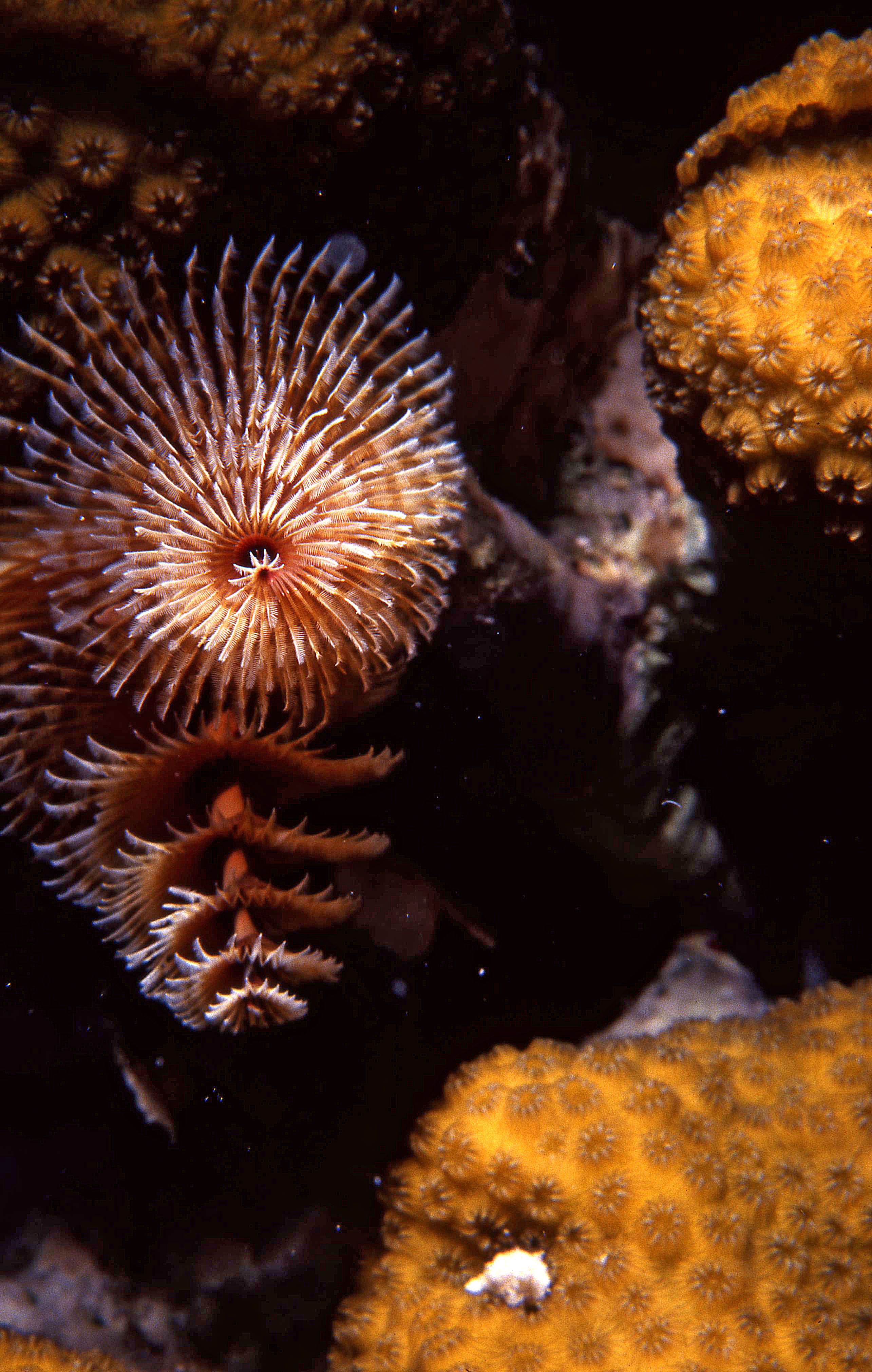
One mission: save the reef
Galvanized to action, CORALL was founded with the mission ‘To Foster the Conservation and Restoration of Coral Reef Ecosystems in Barbados for the Well Being of All’. Their vision is to protect coral reefs through active reef restoration, awareness activities and innovative solutions.
The CORALL alliance is founded on the principles of community engagement and building capacity for the conservation and restoration of coral reefs in Barbados.
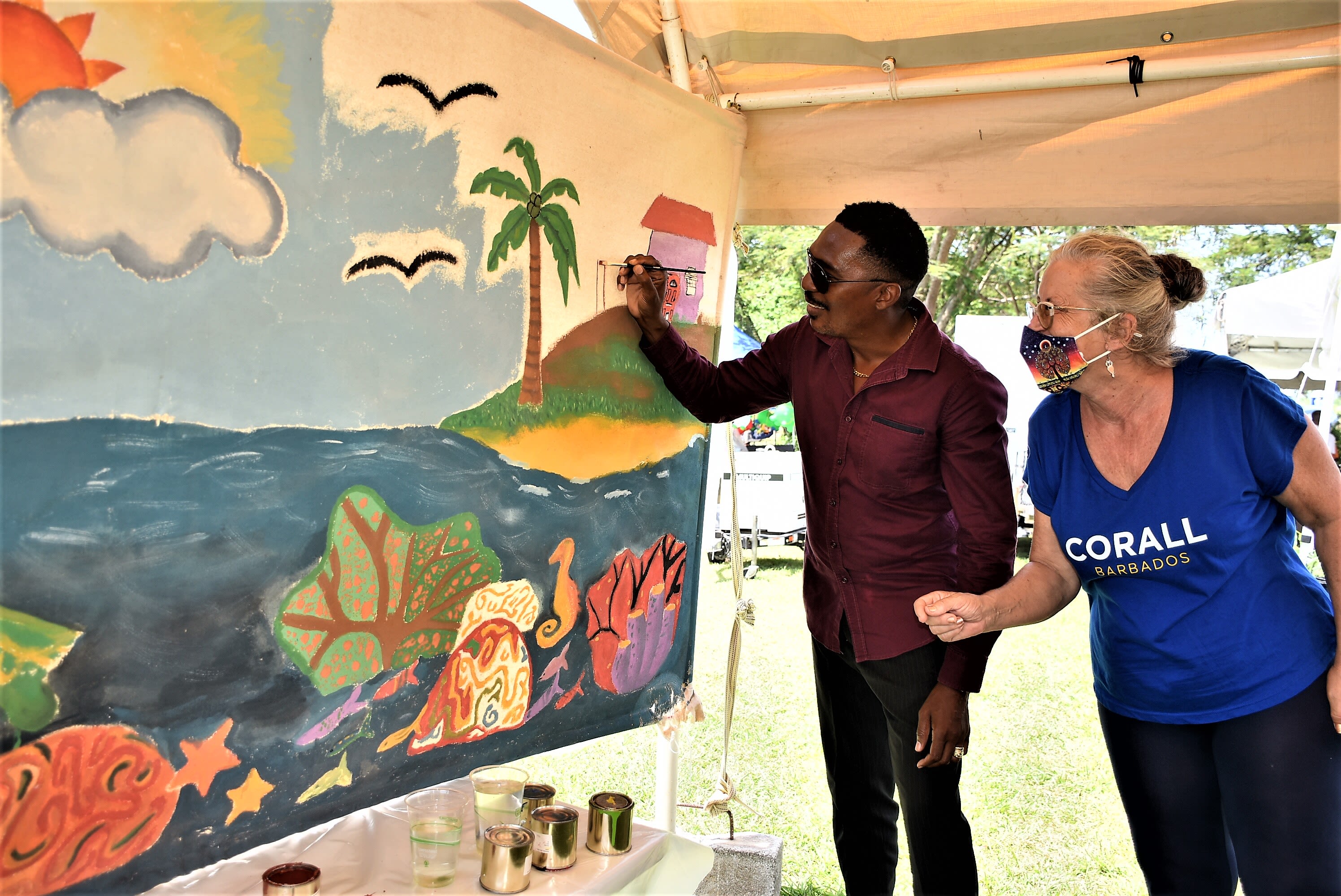
Hon. Adrian Forde, Minister of Environment, National Beautification and the Blue and Green Economy of Barbados participating at an outreach event with CORALL’s President Susan Mahon. Photo: CORALL
Hon. Adrian Forde, Minister of Environment, National Beautification and the Blue and Green Economy of Barbados participating at an outreach event with CORALL’s President Susan Mahon. Photo: CORALL
In 2017, a partnership between CORALL and the GEF Small Grants Programme implemented by UNDP began.
"We must find innovative ways of safeguarding our reefs. Our well-being and the health of the reefs, depends on maintaining a healthy mix of different types of corals and other types of marine life on the reefs.”
Fragments of opportunity
The core of this work is coral reef restoration.
Using globally recognized techniques and methods, the CORALL team actively builds and populates nursery structures with rescued coral fragments.
CORALL established a coral nursery at Vauxhall within the Folkestone Marine Reserve, and two coral restoration sites on the west coast of Barbados at Port St Charles and Driftwood in 2018.
The out-planted fragments were symmetrical brain coral (Pseudodiploria strigosa), elkhorn (Acropora palmata), and staghorn (Acropora cervicornis) species.
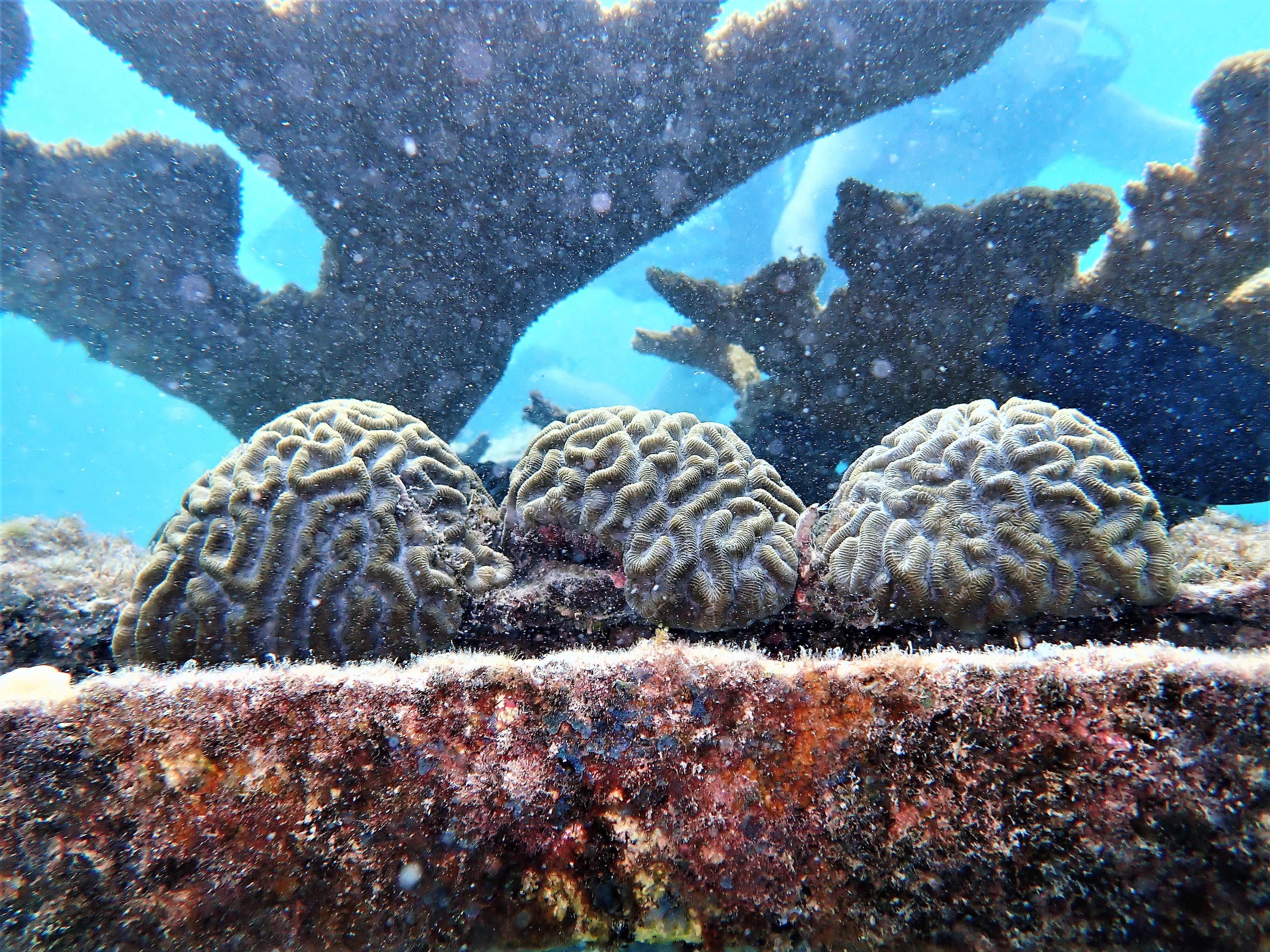
Awareness and action
Another key element of CORALL’s work is community engagement through implementation of outreach programmes based on the ridge-to-reef approach. These outreach programmes are aimed at emphasizing the connection between land-based activities and reef health and resilience.
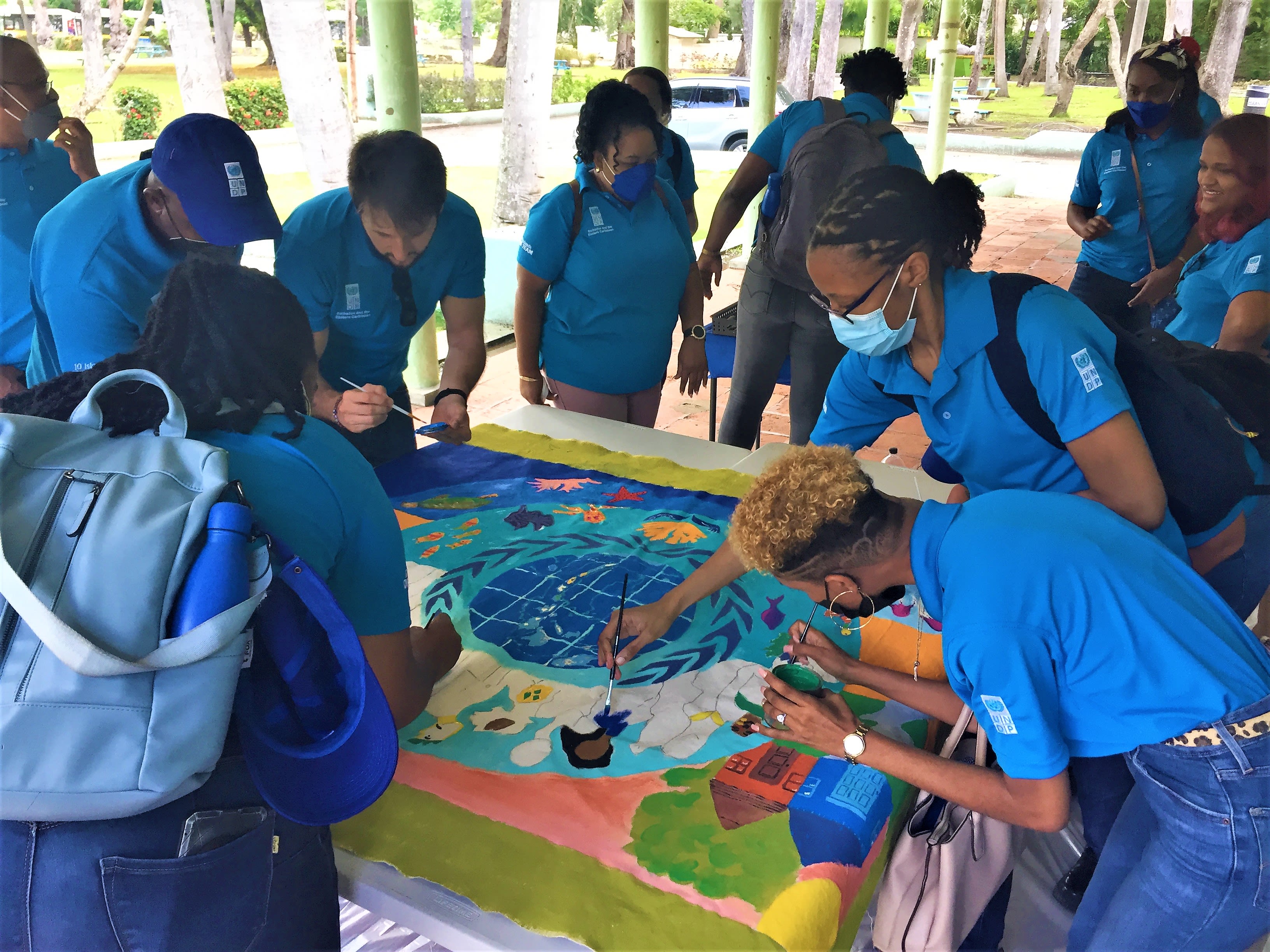
UNDP staff members participating in an awareness raising event at the Folkestone Marine Reserve. Photo: CORALL
UNDP staff members participating in an awareness raising event at the Folkestone Marine Reserve. Photo: CORALL
Through the SGP project, over 50 awareness-raising events were organized with a range of stakeholders, community members, fishers and schools.
Overall, this project engaged 1,500 members of the community in coral restoration through a combination of physical restoration and the Adopt-a-Coral programme, which began in January 2020 and aims to instill a sense of ownership and connection with the reefs.
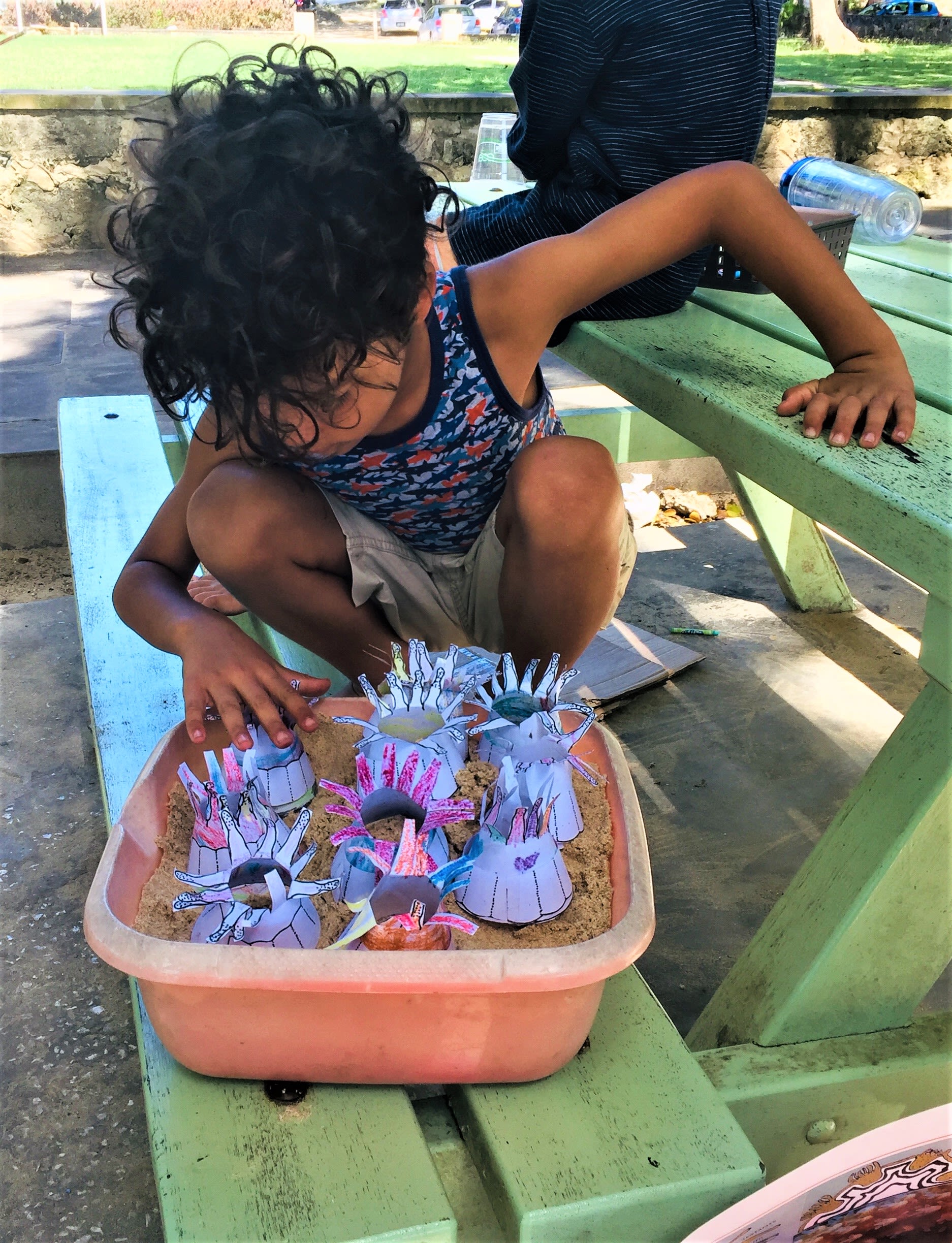
Young student learning about the reef ecosystems with a coral polyp model. Photo: CORALL
Young student learning about the reef ecosystems with a coral polyp model. Photo: CORALL
"People were skeptical that this would work, but we have demonstrated – with the permission of the regulatory agencies of Government and the collaboration of the Coastal Zone Management Unit – that elkhorn and brain corals can grow from tiny fragments to large healthy colonies within a period of four years, and that staghorn corals can grow from fragments of about 3 inches in length to large branching colonies within weeks."
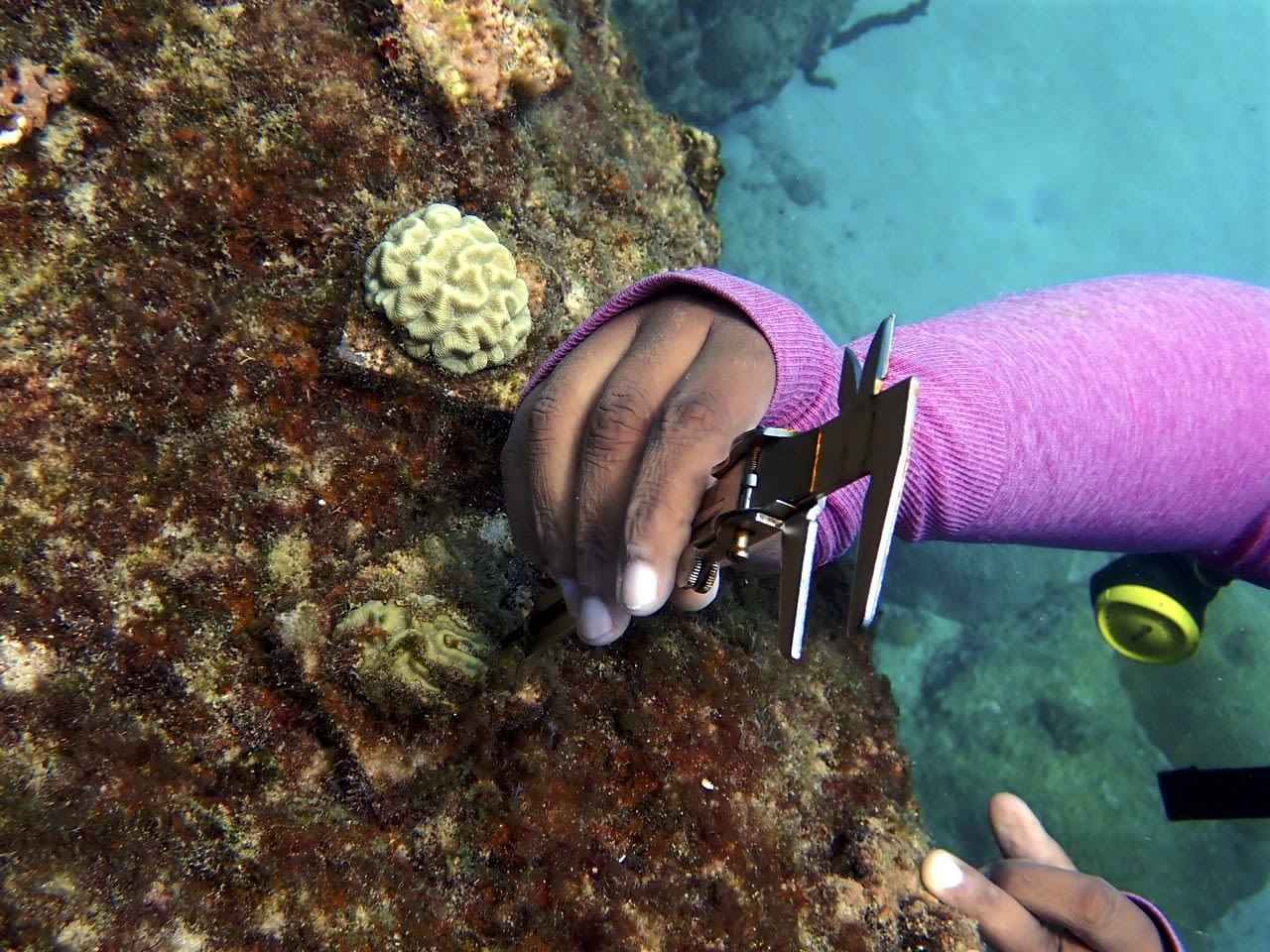
Measuring coral growth. Photo: CORALL
Measuring coral growth. Photo: CORALL
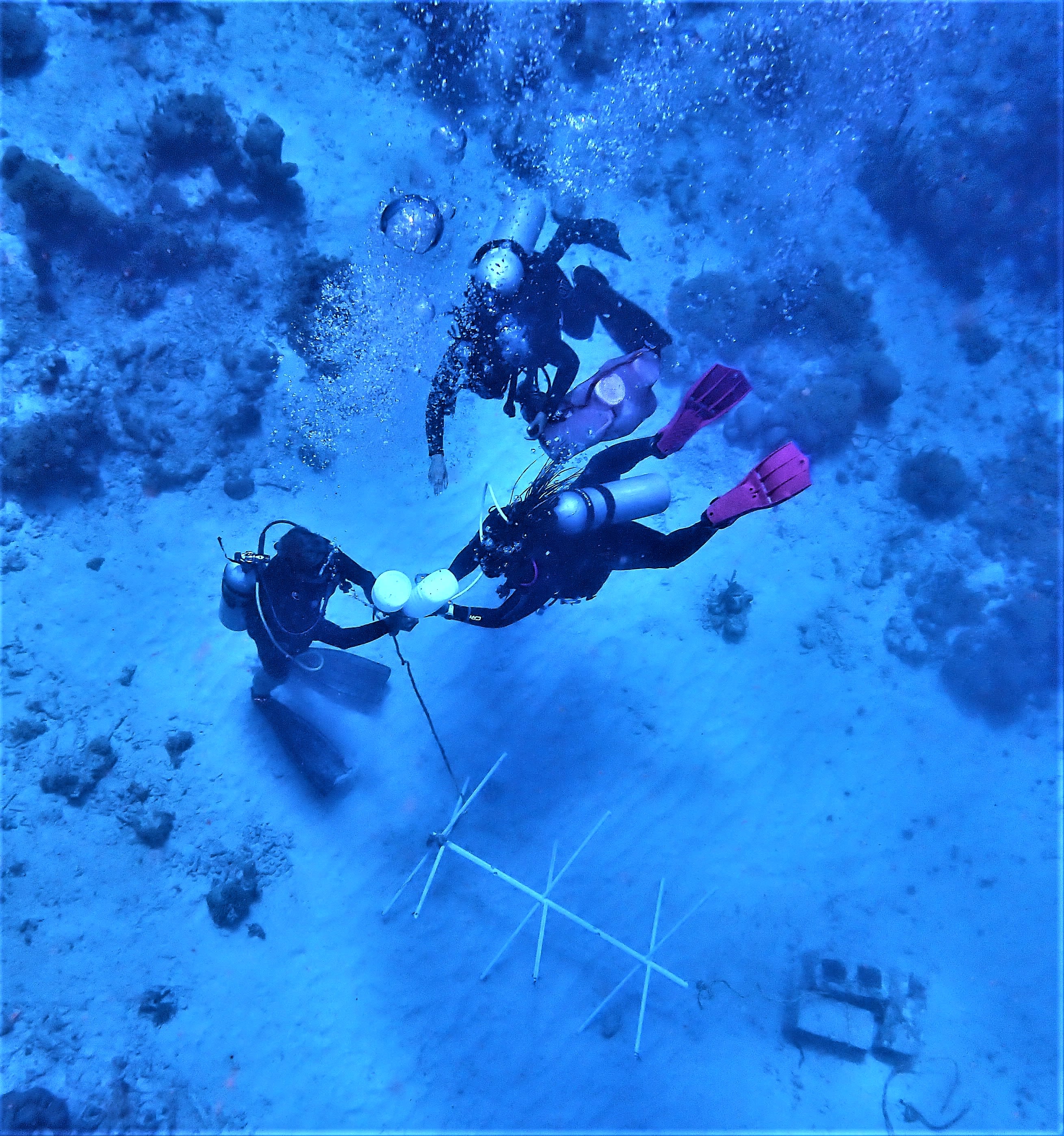
Installing a coral nursery tree at Vauxhall nursery. Photo: CORALL
Installing a coral nursery tree at Vauxhall nursery. Photo: CORALL
Proving what is possible
To date, more than 100 fragments of three species of coral at CORALL’s three restoration sites have survived and are in manifestly good condition.
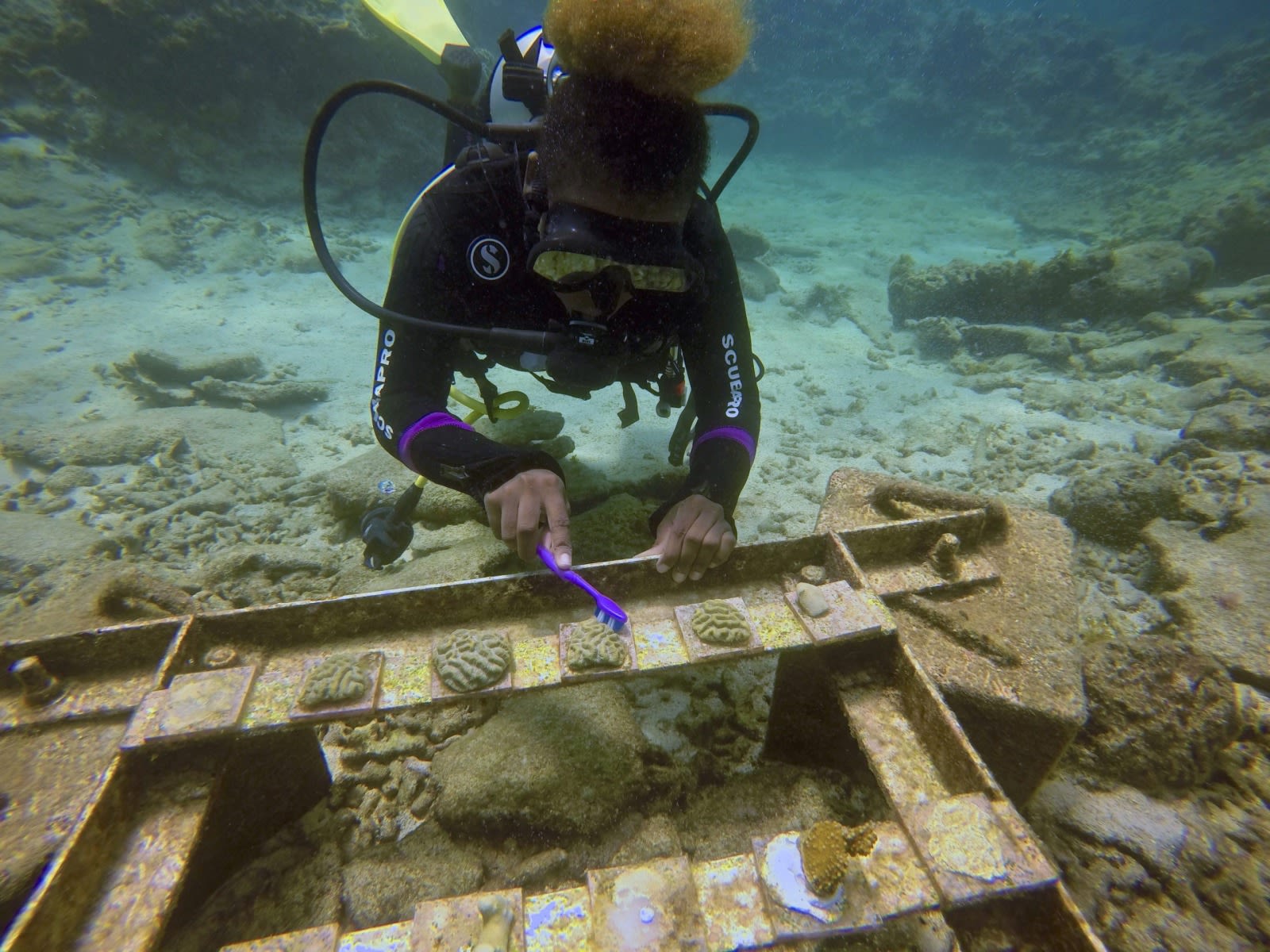
McGill CORALL student member monitoring brain coral fragments. Photo: CORALL
McGill CORALL student member monitoring brain coral fragments. Photo: CORALL
CORALL’s two field trials at Port St Charles and Driftwood, and the pilot CORALL nursery at Vauxhall Reef, have demonstrated that coral restoration is feasible along this stretch of the western coast of Barbados that spans approximately 14 kilometres.
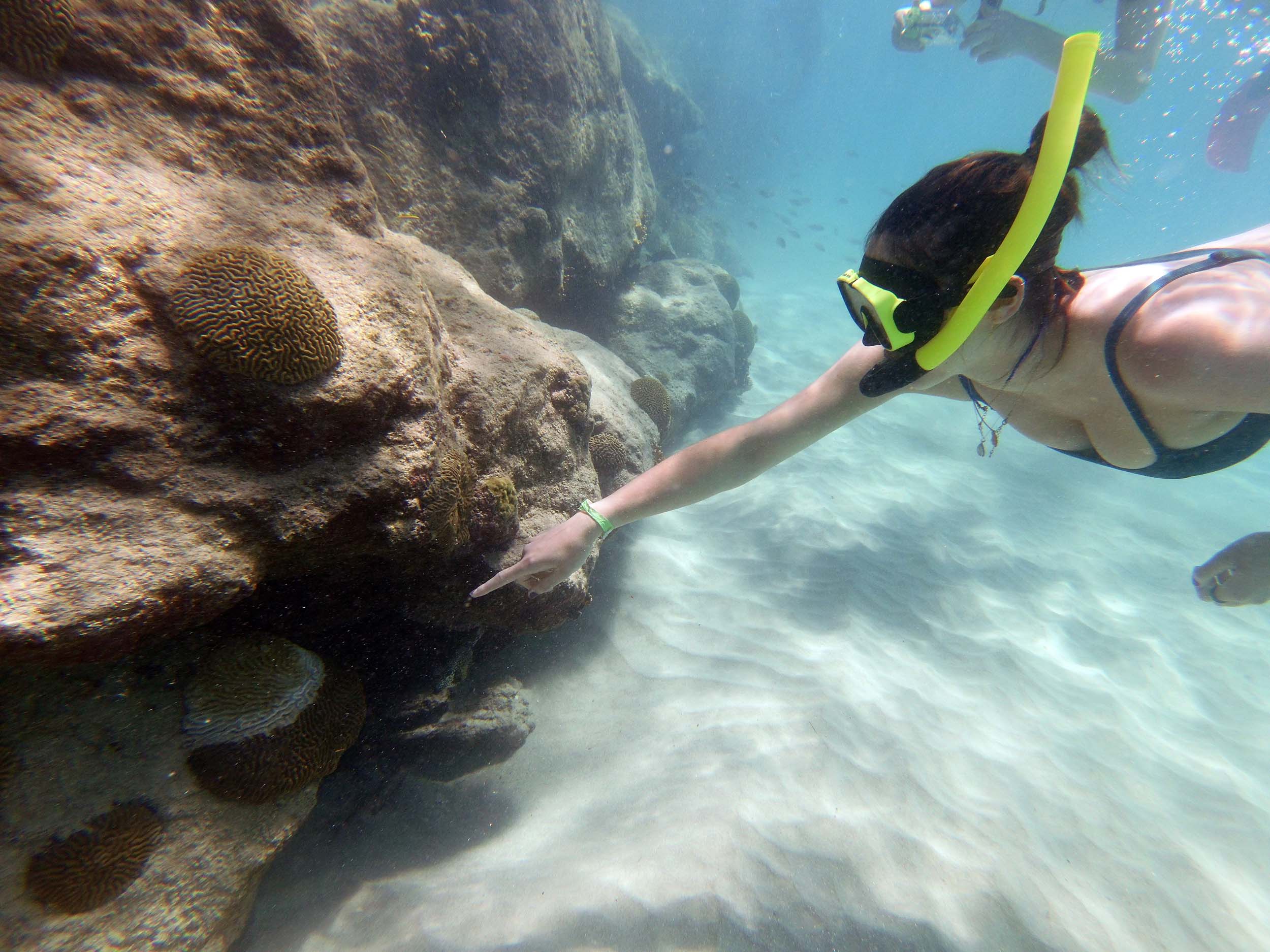
McGill CORALL student member monitoring corals for disease. Photo: CORALL
McGill CORALL student member monitoring corals for disease. Photo: CORALL
This coastal area is densely populated, with many land-based activities that affect water quality. Raising awareness, and supporting local action and rehabilitation is therefore crucial to restoring the reefs and sustainably managing the associated ecosystem services.
Valiantly surviving a pandemic, the eruption of La Soufrière Volcano in St Vincent in April 2021, a freak thunderstorm of record intensity in June 2021, and Tropical Storm Elsa that became a hurricane as it passed near Barbados during July 2021, this project shows that coral ecosystem restoration can be resilient and successful.
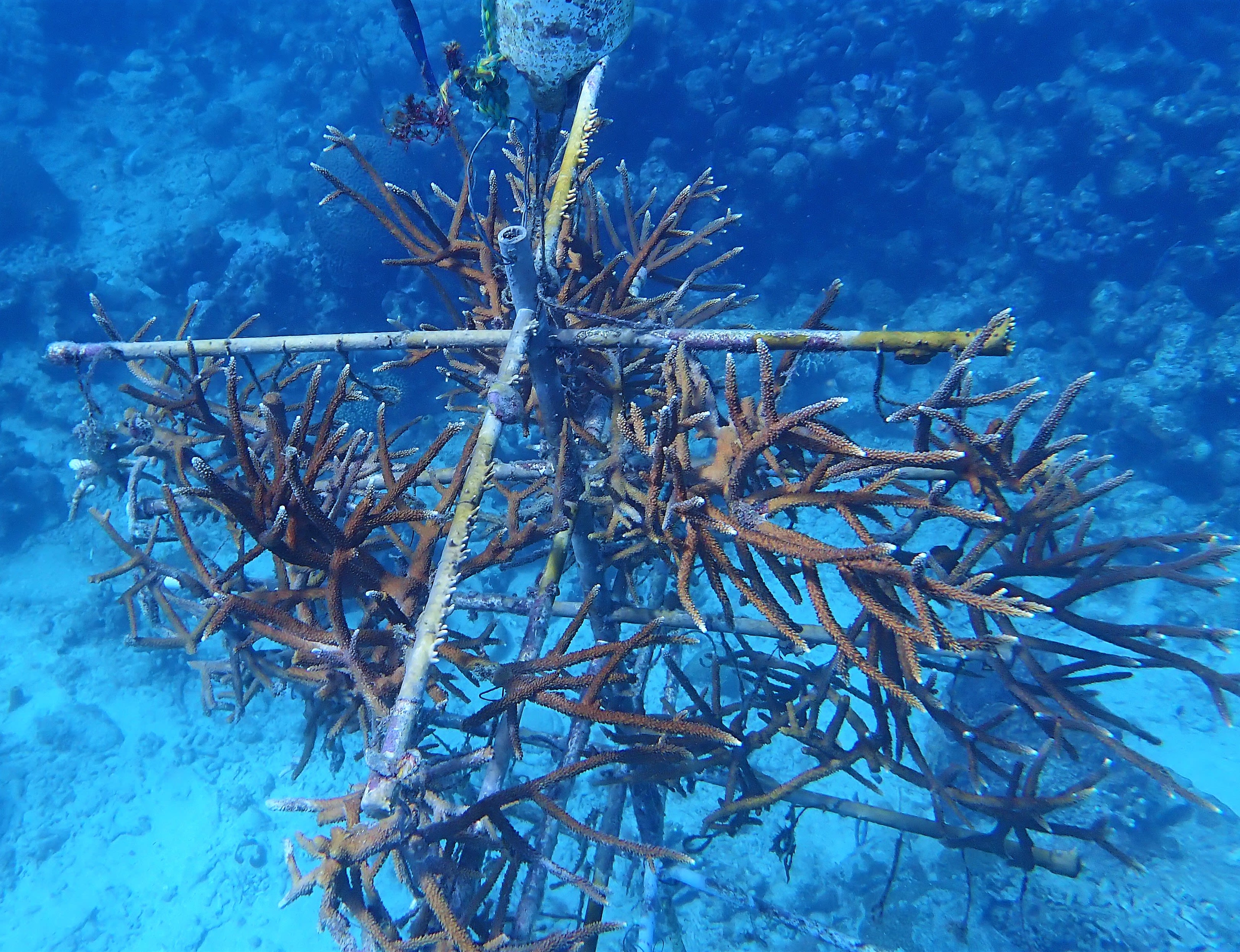
Coral nursery tree with established staghorn corals at Vauxhall nursery. Photo: CORALL
Coral nursery tree with established staghorn corals at Vauxhall nursery. Photo: CORALL
The three healthy coral restoration sites established by CORALL on the west coast of Barbados also serve as a demonstration of what may be achieved in terms of engaging members of the community in ecosystem restoration.
CORALL focuses on monitoring, maintaining, and enhancing existing nurseries (with the permission and involvement of Barbadian government regulatory agencies), and has obtained permission in principle to develop a Nature Interpretive Area and Nature Tour at Vauxhall Reef within Folkestone Marine Reserve. The tour will include highlighting biodiversity and coral restoration.
Based on these successes, restoration efforts have expanded, and additional sites are being established.
Power of community action
This project owes its success in large part due to broad-based support from a wide range of stakeholders from the public and private sectors, as well as local fishers and community members. Volunteers have been actively supporting replanting, monitoring, cleaning and measuring established coral fragments, and providing skills, services, and equipment to support CORALL’s work.
“Citizen science is at the heart of CORALL’s mission, it’s an inclusive approach that engages the public, civil society, private sector, the government and research institutions in protecting our marine environment- we’re all in this together”
Building back biodiversity
“It has always been my dream to be a marine biologist, so I want to part of anything involved in protecting the marine space in Barbados.”
CORALL also works closely with the Barbados’ Coastal Zone Management Unit and the National Conservation Commission, to ensure that the work is aligned to national conservation and blue economy priorities.
This work highlights the importance of partnerships and local action toward building back biodiversity.
For information on SGP’s global portfolio, visit here.
For more information on SGP-supported projects in Barbados, visit the Barbados Country Page.
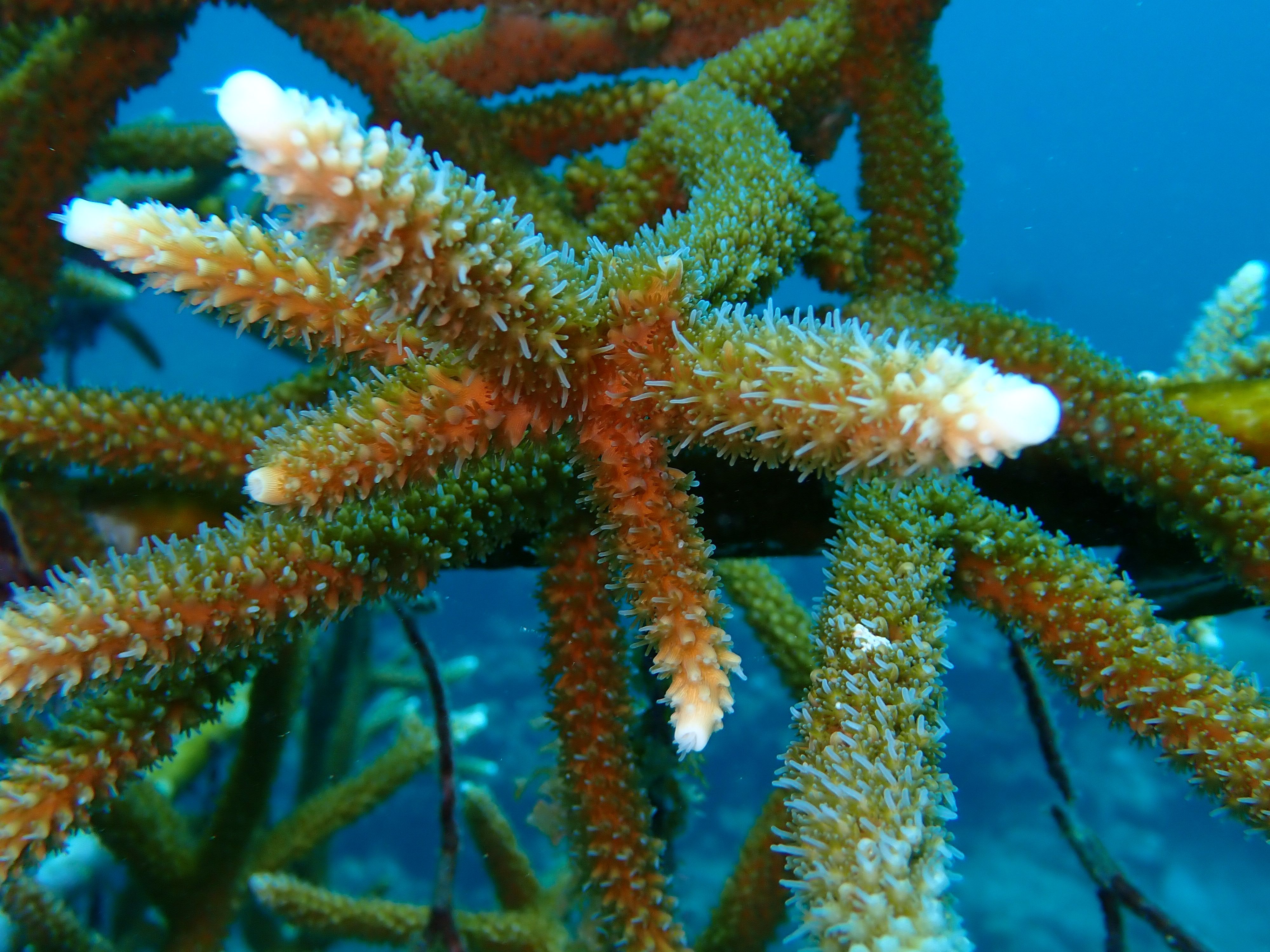
Thriving staghorn corals at Vauxhall nursery. Photo: CORALL
Thriving staghorn corals at Vauxhall nursery. Photo: CORALL

Footnotes: Text by Andrea Egan, Rissa Edoo, Murat Okumah
Photos: © Courtesy of CORALL, SGP Barbados and others as noted.
Header photo: Coral reef, Caribbean. Photo: Umeed Mistry/Ocean Image Bank
Location: West coast, Barbados
